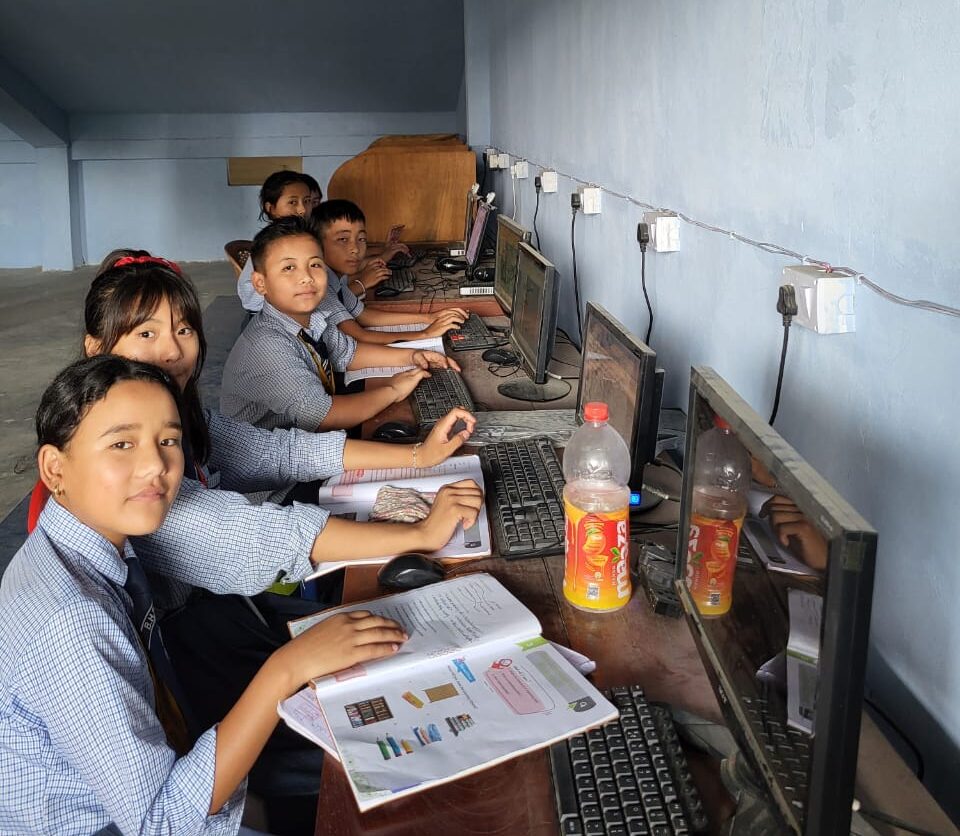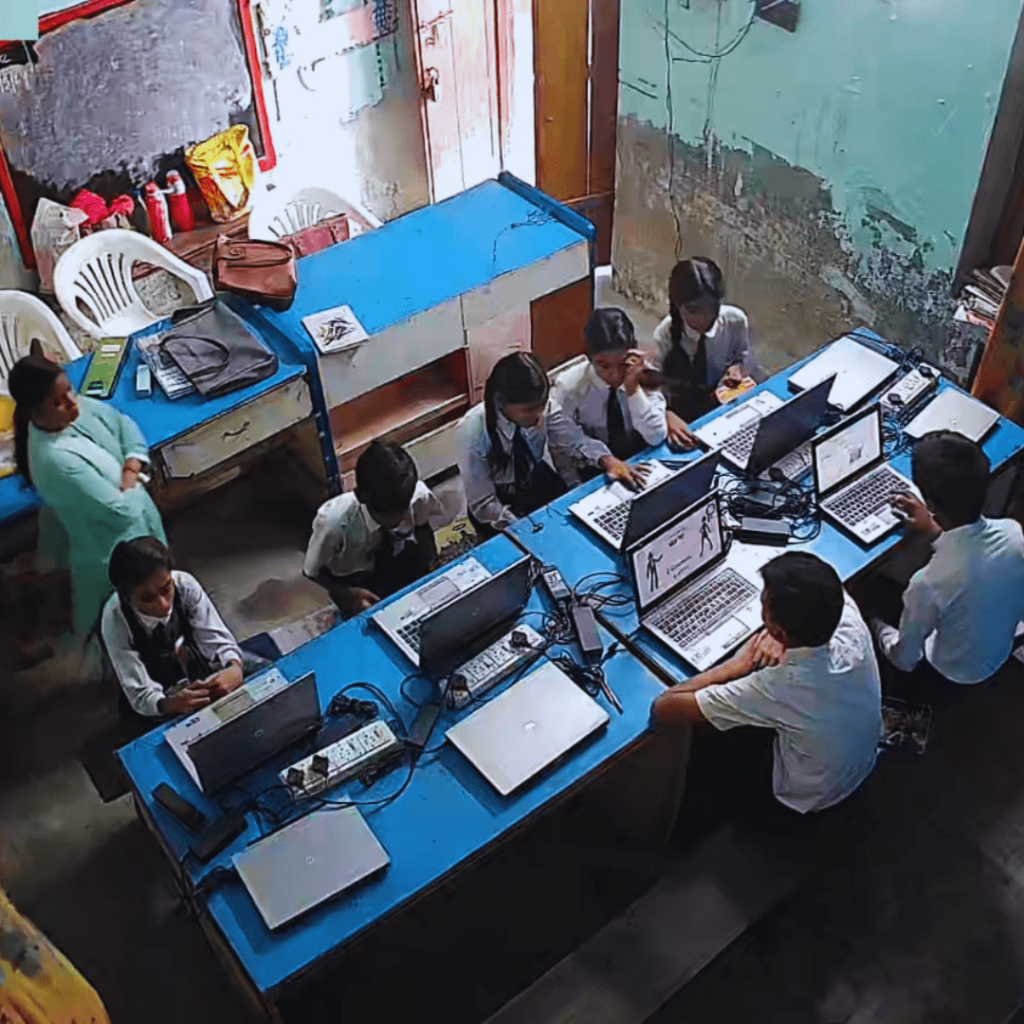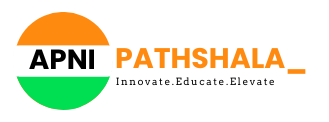Why Exam Marks Are Meaningless: We Should Focus on Proof of Learning Through Microcertifications and Online Portfolios
In today’s fast-paced world, the traditional education system, with its heavy reliance on exam marks, is increasingly seen as inadequate for preparing students for real-world challenges. As we move further into the digital age, the focus is shifting from traditional assessments to more dynamic and practical forms of learning validation such as microcertifications and online portfolios. This article explores why exam marks are becoming meaningless and how proof of learning through these modern methods is reshaping education and career development.

The Traditional Education System and Its Limitations
Historical Context : The traditional education system was designed during the Industrial Revolution to meet the needs of an economy that required a workforce capable of following instructions and performing repetitive tasks. However, in today’s knowledge-based economy, this model is no longer sufficient. Our modern economy demands creativity, critical thinking, and specialized skills that the traditional system does not effectively foster.
One-Size-Fits-All Approach : The conventional approach to education assumes that all students learn in the same way and at the same pace. This one-size-fits-all methodology fails to account for individual differences in learning styles, interests, and abilities. Such an approach not only stifles creativity but also disengages students who do not fit the mold, leading to an overall reduction in the quality of education and student satisfaction.
Memorization Over Application : Traditional exams often prioritize memorization over the application of knowledge. Students are rewarded for their ability to recall information rather than demonstrate their understanding and problem-solving skills. This system emphasizes short-term retention over long-term comprehension and fails to prepare students for real-world challenges where applied knowledge is crucial.
The Problem with Exam Marks

Exam Stress and Anxiety The pressure to perform well in exams can lead to significant stress and anxiety among students. This high-stress environment can negatively impact their mental health and overall well-being. The relentless focus on marks can overshadow the importance of actual learning, turning education into a race for grades rather than a journey of intellectual growth.
Limited Scope of Assessment : Exams typically assess a narrow range of skills, focusing on rote learning rather than critical thinking, creativity, and practical skills. This limited scope means that many important competencies go unmeasured. As a result, students might excel in exams yet lack essential skills needed for their future careers.
Inconsistencies in Grading : Grading can be subjective and inconsistent, leading to unfair evaluations. Different teachers might grade the same paper differently, and even the same teacher might grade differently at different times. This inconsistency undermines the reliability of exam marks as a true measure of a student’s abilities and knowledge.
Microcertifications: A New Era of Learning Validation
Definition and Overview : Microcertifications are short, focused courses that validate specific skills and competencies. They are designed to be more relevant and aligned with industry needs compared to traditional degrees. These certifications provide targeted education that equips students with the precise skills demanded by employers.
Flexibility and Accessibility : One of the major advantages of microcertifications is their flexibility. They can be pursued alongside work or other commitments, making education more accessible to a broader audience. This flexibility allows learners to continuously upgrade their skills without disrupting their professional or personal lives.
Industry Relevance : Microcertifications are often developed in collaboration with industry experts, ensuring that the skills taught are up-to-date and relevant to current job markets. This industry alignment makes microcertifications highly valuable for both job seekers and employers, as they bridge the gap between education and employment.
The Rise of Online Portfolios

What Are Online Portfolios? : An online portfolio is a digital collection of a person’s work and achievements. It showcases projects, skills, and experiences in a visually appealing and easily accessible format. Unlike traditional resumes, online portfolios provide a dynamic way to present one’s capabilities and accomplishments.
Benefits for Students and Professionals : Online portfolios provide a platform for individuals to demonstrate their skills and experiences comprehensively. They are especially valuable in creative fields, but their use is expanding across various industries. For students, portfolios offer a way to document their learning journey and present a holistic view of their capabilities.
How They Showcase Skills and Projects : Through online portfolios, individuals can present detailed case studies, project outcomes, and even client testimonials, offering a richer picture of their capabilities than a traditional resume or exam marks ever could. This method allows for a more nuanced and in-depth presentation of one’s abilities and achievements.
Comparing Traditional Exams to Modern Alternatives
Practical vs. Theoretical Knowledge : Microcertifications and online portfolios emphasize practical knowledge and real-world application, whereas traditional exams often focus on theoretical understanding. This shift towards practical skills is crucial in preparing students for actual job requirements.
Continuous Learning vs. Static Evaluation : Microcertifications support continuous learning, allowing individuals to update their skills regularly. In contrast, traditional exams provide a static evaluation that may quickly become outdated. Continuous learning ensures that individuals remain relevant and competitive in an ever-evolving job market.
Customization and Personalization : Modern learning tools allow for customized and personalized learning paths tailored to an individual’s career goals and interests, enhancing engagement and effectiveness. This personalization makes learning more relevant and motivating for students, leading to better outcomes.
Real-World Application of Microcertifications and Portfolios
Case Studies and Success Stories : Many individuals have found success through microcertifications and online portfolios. For example, tech professionals often use platforms like GitHub to showcase their coding projects, leading to job offers and freelance opportunities. These real-world examples highlight the effectiveness of these modern learning validation methods.
Employer Perspectives : Employers are increasingly recognizing the value of microcertifications and portfolios. They provide a more comprehensive view of a candidate’s abilities, making hiring decisions more informed and effective. Employers appreciate the clear demonstration of skills and the evidence of continuous learning.
Student Experiences : Students report that creating online portfolios and obtaining microcertifications enhances their learning experience and makes them feel more prepared for the workforce. These tools empower students to take charge of their education and career development, fostering a sense of ownership and confidence.
The Role of Technology in Modern Learning
Online Learning Platforms : Platforms like Coursera, Udacity, and LinkedIn Learning offer a wide range of microcertification courses, making high-quality education accessible to anyone with an internet connection. These platforms democratize education by providing opportunities to learn from leading institutions and experts.
Digital Tools and Resources : Various digital tools, such as e-portfolios, project management software, and virtual labs, support the creation and maintenance of online portfolios and facilitate practical learning experiences. These tools enhance the learning process by making it more interactive and engaging.
Future Trends in Education Technology : The future of education technology includes innovations like artificial intelligence, virtual reality, and blockchain credentials, which will further enhance the learning experience and the validation of skills. These advancements promise to make education more efficient, personalized, and secure.
The traditional focus on exam marks is outdated, as microcertifications and online portfolios offer more relevant and practical validation of skills. These modern approaches emphasize continuous learning, real-world application, and personalized education, better preparing individuals for today’s job market. Embracing these innovations enhances both educational and career outcomes.

